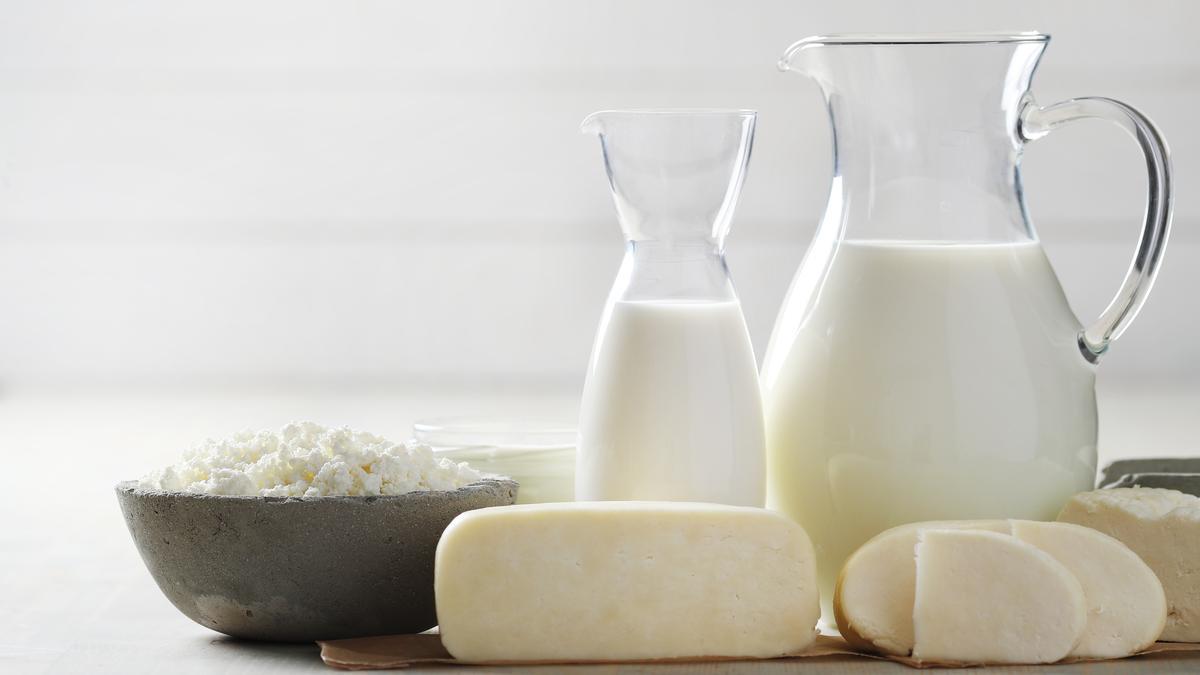Dairy products have become the great enemy of weight loss. In fact, in recent years, skim and low-fat products and non-dairy substitutes have been imposed on supermarket shelves with the premise of consuming healthier foods.
The dairy productssuch as milk, yogurt and cheese, are foods with high nutritional density.
They provide:
-
Proteins of high biological value
-
Carbohydrates, mainly in the form of lactose
-
Fat
-
Vitamins, including B complex
-
Minerals such as calcium, magnesium, phosphorus and zinc.
And although they are usually taken throughout life, the doctor José Antonio Casermeiroexplains to ‘Health Guides’,
-
“They can be very necessary and important for a child who is growing.”
-
“They are less important for an adult of normal weight and with a balanced diet
-
“They may even be discouraged from the diet in an adult who is overweight or with a very altered lipid profile.”
But should they be prohibited in a low-fat diet and is it more advisable to opt for options Light?
“Calcium is not only in dairy products, it is in a multitude of foods of plant origin such as broccoli, white beans”
The specialist points out that “for weight loss, even light options may be inadvisable. For example, in the Protéifine Protein Contribution Diet we remove them, to a large extent, in order to achieve rapid and safe weight loss.
-
“To ensure that this strategy is completely effective, in parallel, we prescribe the patient with all the necessary supplements so that, during the process, the patient does not suffer any type of nutritional deficiency due to the fact of suspending them or greatly reducing them.”
Is it good to eliminate dairy?
The million dollar question is to know, does restricting dairy consumption have consequences on our health?
The doctor clarifies:
“Speaking for example of its most necessary contribution, calcium, one may think that it is better to drink cow’s milk because it is where higher calcium content there is and, therefore, people who do not drink dairy products may be deficient in this mineral.
However, “this is not true, since calcium is not only in dairy products, it is in a multitude of foods of plant origin such as broccoli, white beans, tofu (made with calcium salts), kale, cauliflower, almonds…and many others of animal origin such as sardine, horse mackerel, whiting or sea bream.”
Vegetable drinks, a good alternative?
A vegetable drink is a food that is created by mixing varieties of nuts, seeds and/or cereals with water and in some cases with other components to “improve” the flavor (sugar or sweeteners) or some micronutrients to improve its nutritional quality.
However, if we look at the nutritional values We can see that the vegetable percentages are nothing out of this world. Especially in almond drinks, which usually does not exceed 8%. In the rest they are somewhat higher, but not at all important.
“Many vegetable drinks are, practically, water with sugar and a little bit of the vegetable dissolved to be able to put it on the label”
Regarding its protein content, it can be said that in general terms it is low, although in soy drinks there is a higher content than the rest (3.3 grams per 100 grams of product).
Regarding the sugar content, the Dr. Casermeiro“there are many of these drinks that contain it to improve the flavor.”
And concludes:
-
“We can conclude in this regard that many vegetable drinks are, practically, sugar water and a little bit of the dissolved vegetable to be able to put it on the label.
Hence, he insists, “we can consider vegetable drinks as completely dispensable foods in the vast majority of cases.”
And what about kefir? Is it a better option?
Kefir is a probiotic food that contains many bioactive compounds, including up to 30 strains of healthy bacteria.
Its compounds and nutrients, such as biotin and folate, due to their probiotic properties, optimize the immune system and protect cells.
The probiotic strain of kefir called Lactobacillus kefirihelps the body defend itself against harmful bacteria such as salmonella and E. Coli.
In another sense, the insoluble polysaccharide called kefiran present in this drink has been shown in scientific studies to be a powerful antimicrobial, having the ability to help fight intestinal candidiasis.
For all these reasons, concludes Dr. Casermiro, “we can consider kefir, in general, as a healthy and convenient food.”

